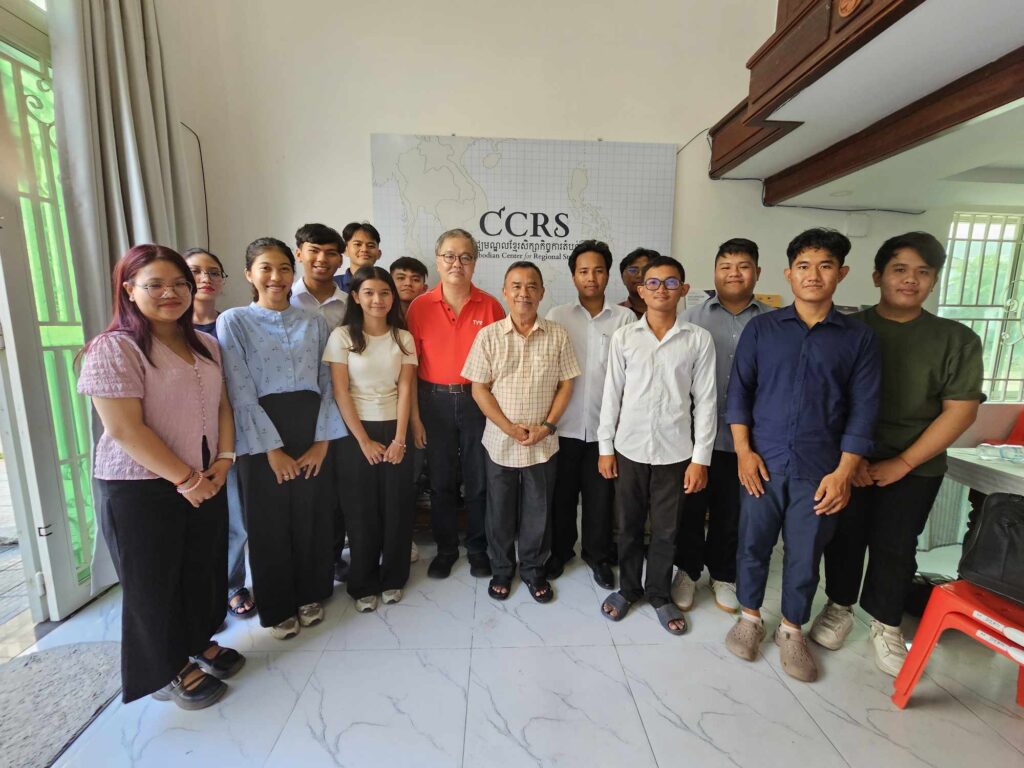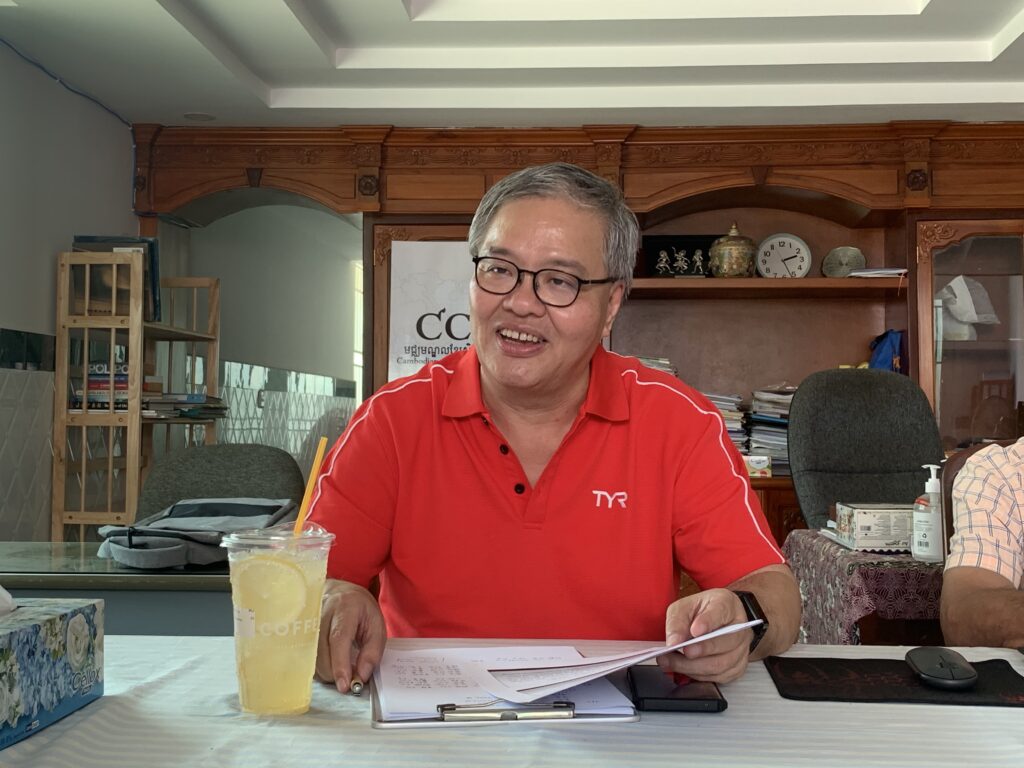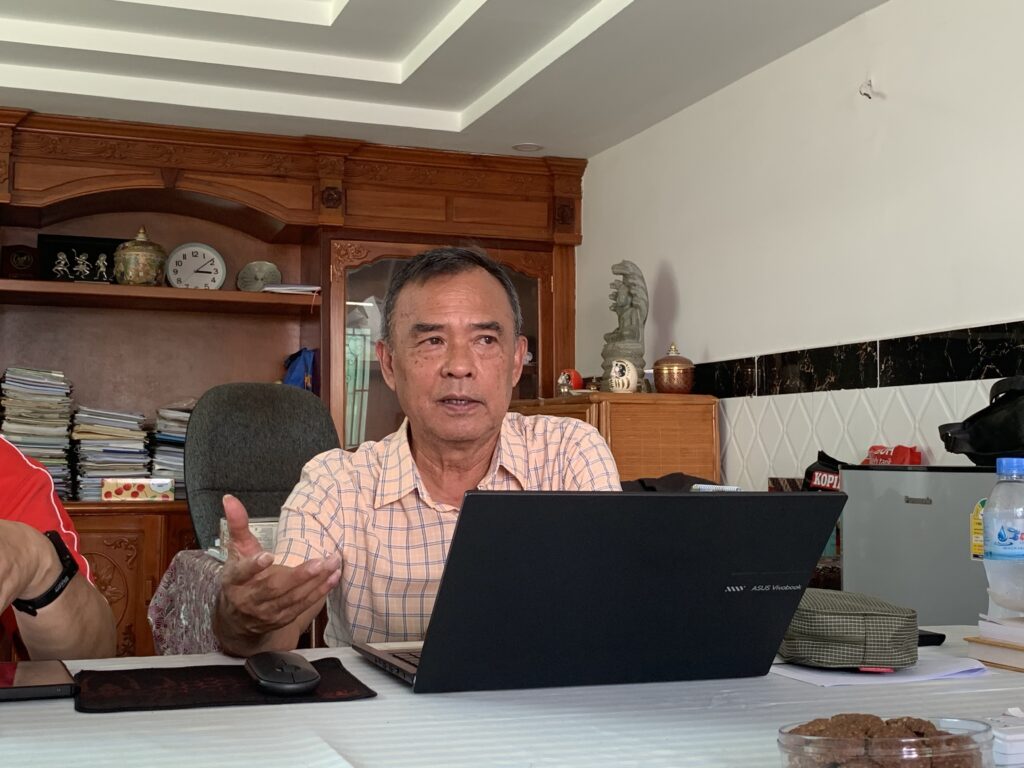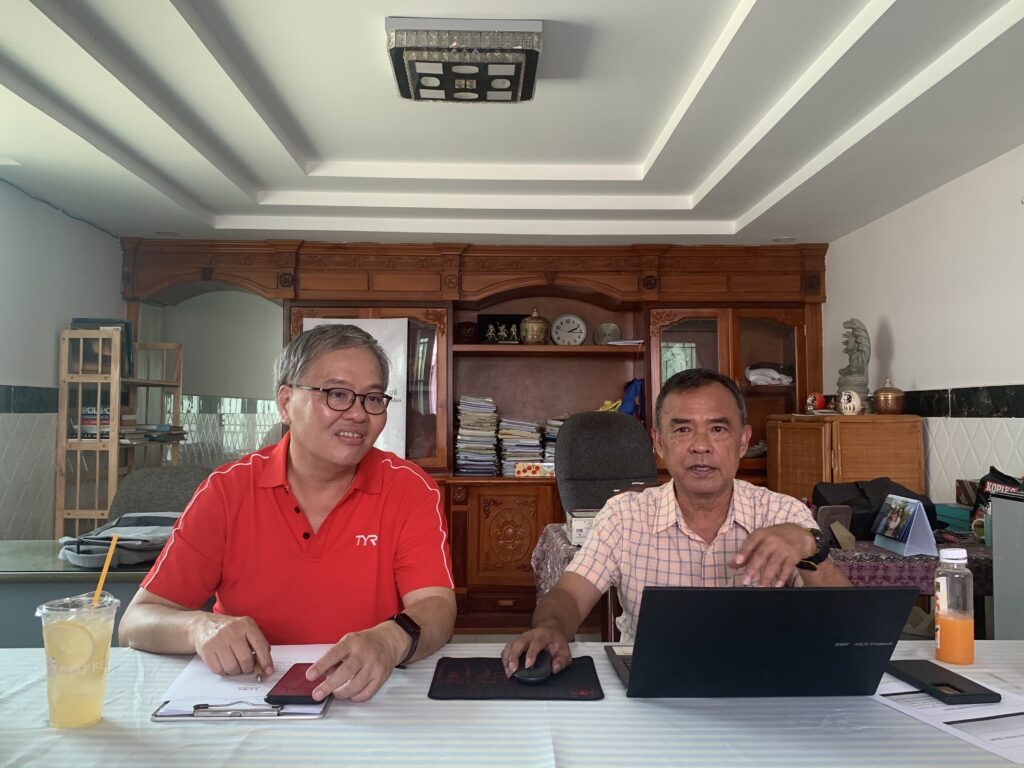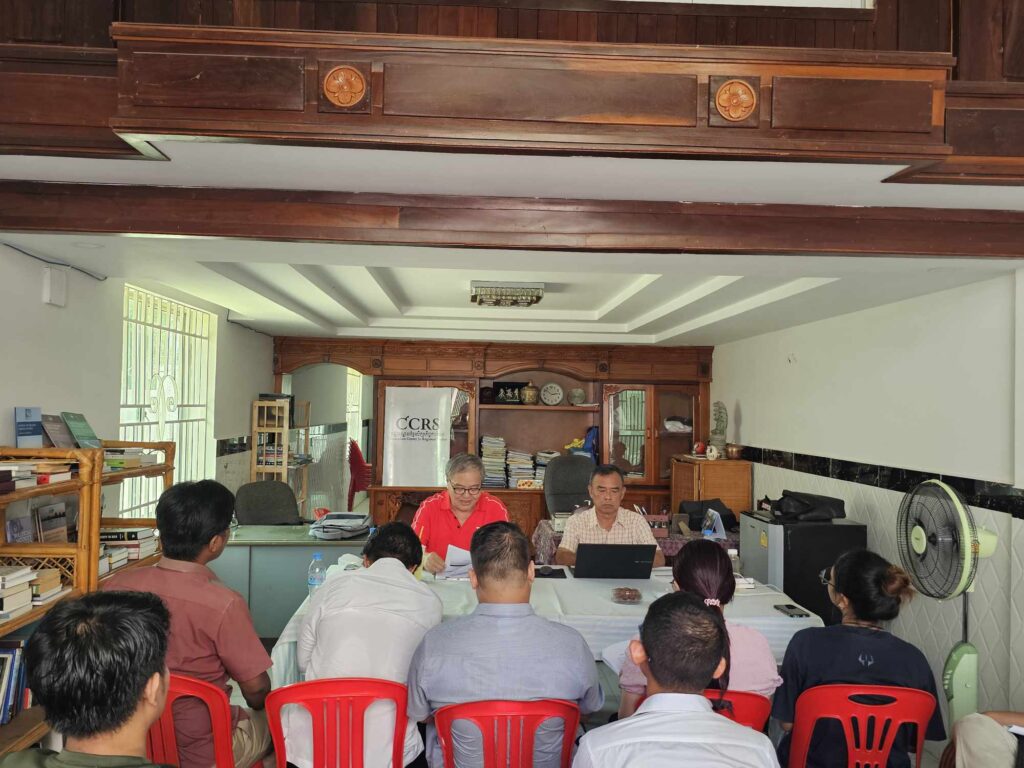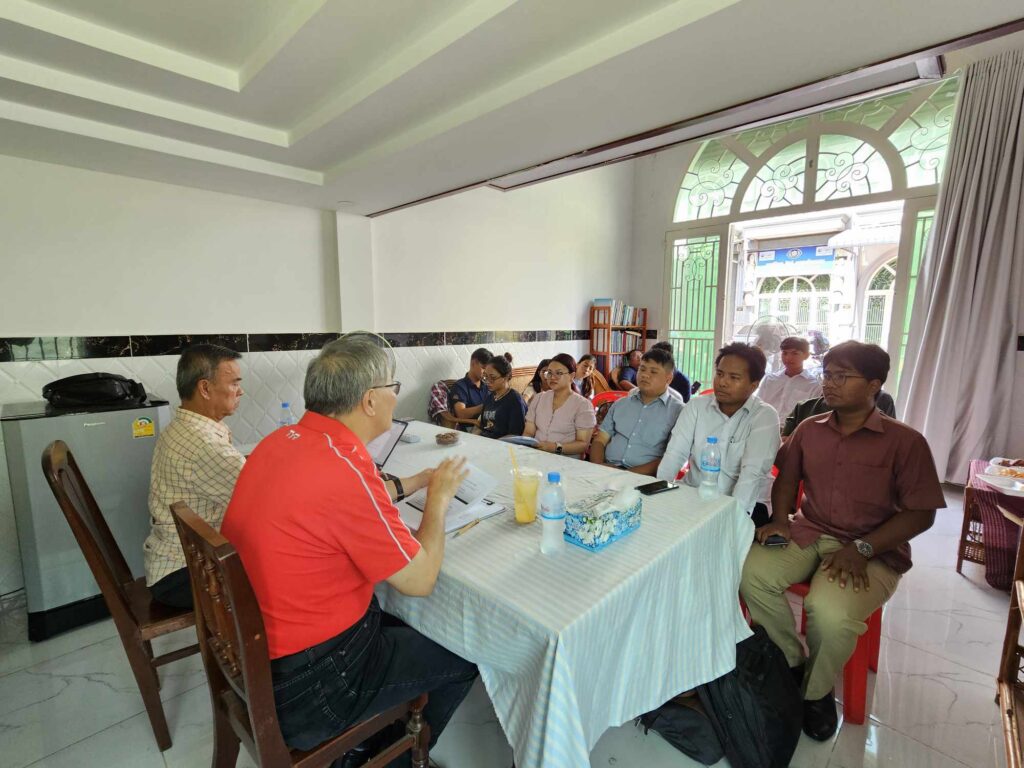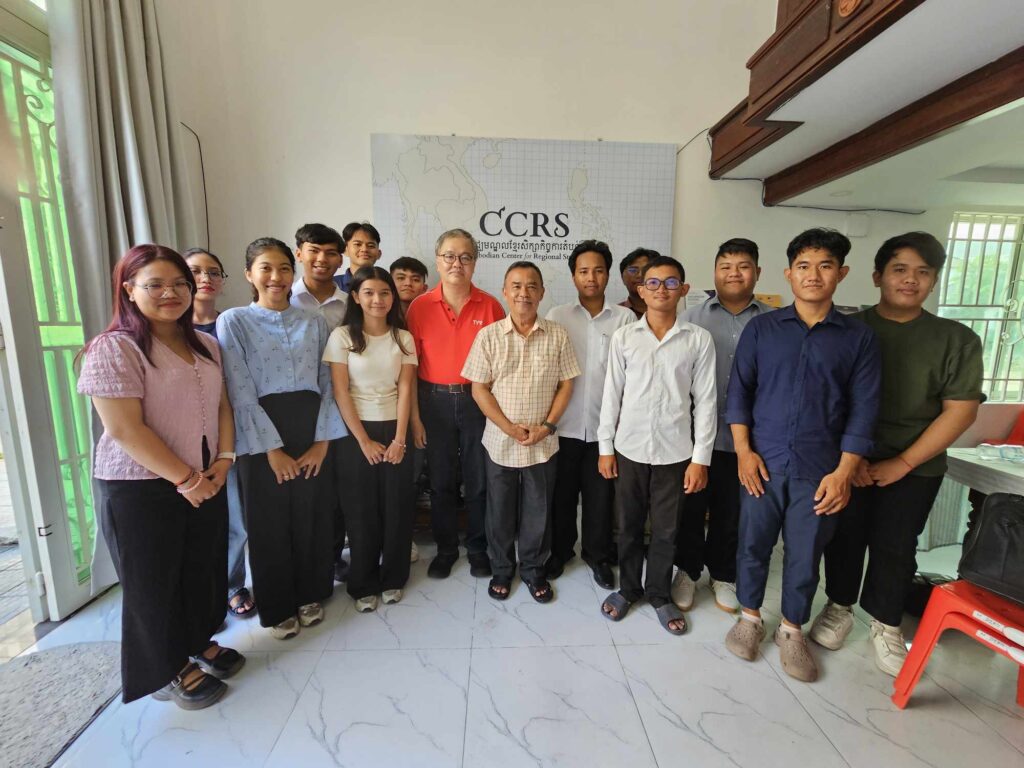On 4 April 2024, CCRS organized a workshop on “How to be an Effective Think Tank” by Dr. Henry Chan, a Visiting Distinguished Senior Fellow of CCRS. During this workshop, our guest speaker shared his perspective on how to become an effective Think Tank with about 20 CCRS researchers. There was a lively conversation between Dr. Chan and the CCRS researchers.
In this workshop, Dr. Chan shared his experience working in the think tanks and academia field. According to him, think tanks are regarded as civil society organizations that conduct research to influence policy. The functions of think tanks include researching, generating ideas for policymaking, capacity building, providing spaces for discussion and forming networking links with various stakeholders.
The following points are important in building an effective think tank: (1) insightful and capable leadership, (2) possesses adequate funding, (3) inculcate qualified researchers with excellent analytical and good communication skills, (4) have a well-crafted communication strategy, (5) develop a good governance structure, (6) put in place sound monitoring, evaluation, and learning system.
Ambassador Pou Sothirak, Distinguished Senior Advisor, CCRS, said the workshop by Dr Chan was a useful opportunity for CCRS researchers to understand in depth the roles of think tanks and ways that CCRS can build itself as a reputable regional center that can contribute meaningfully to out of box public policies for Cambodia and the region. , especially about discussions related to regional affairs. The aspiration to become an effective regional think tank that plays positive roles to become a viable policy influencer is not easy because achieving this goal requires all CCRS researchers to develop in-depth knowledge on relevant issues and far-sighted vision, get hold of sufficient resources, develop leadership skills and teamwork, and work patiently. He encouraged CCRS researchers to pay close attention and reflect seriously on what Dr Chan said during this workshop.
By way of seeking feedback from Dr. Henry Chan, Ambassador Pou Sothirak informed Dr. Chan about the recent 6 CCRS Research Pillars: Cambodia’s Foreign Policy, Territorial Disputes in Southeast Asia, Mekong Issues and Subregional Development Mechanisms, Regional Architecture and Obligations in ASEAN, Regional Economic Integration in Southeast Asia, and Innovations and Environmental Sustainability.
The exchanges between the participants and the guest speaker evolved around key questions, such as what would be considered good research topics, the best way to improve analytic skills when doing research, and the best ways to influence policymakers.
About the topics of the research, Dr Chan suggested various homegrown issues of particular relevance for Cambodia, and these include Mekong issues; pragmatic foreign policies for Cambodia to engage effectively with ASEAN and other powers in the region and globally, paying special attention to foreign policy engagement with neighboring countries; how Cambodia embrace innovation and technology such as digital transformation, green and clean energy, climate change, and economic integration.
On developing analytical skills, Dr Chan suggested that CCRS read widely all pertinent topics and issues relevant to the current state of domestic, regional and international affairs. Also, holding regular in-house roundtable discussions on issues of the day and current research works among CCRS researchers helps to hone CCRS research capability. They can share their best practices and lessons learned with their peers to improve their analytic skills. CCRS should develop active linkage with other think tanks and attend conferences, seminars, and workshops as much as possible to improve their knowledge and deepen their understanding of important national and regional issues.
On what is the best way to influence policymakers, Dr Chan stressed the main goal of a think tank is to influence policy in a variety of ways, including efforts to provide unique expertise that is based on evidence and analysis and to infuse the policy process with new ideas or approaches, as well as various activities aimed at drawing attention to their research works. CCRS should aspire to maintain productive relationships with policymakers and contribute quality research papers to improve public policies required by policymakers. Only then can CCRS qualify themselves as effective policy influencers.
An indicator of a successful think tank is its standing in the minds of stakeholders such as mass media, reputable overseas think tanks and government agencies. Whenever an important issue happens, a successful think tank is always the first to be consulted and sorted by other stakeholders in its view.
The workshop lasted about two and a half hours and was productive. CCRS researchers gained many good ideas and valuable lessons on making CCRS a leading think tank. CCRS would like to express deep appreciation to Dr Chan and Amb. Pou Sothirak for offering good ideas, interesting suggestions, and valuable lessons that will help develop CCRS as an excellent center for regional studies in the long run.
